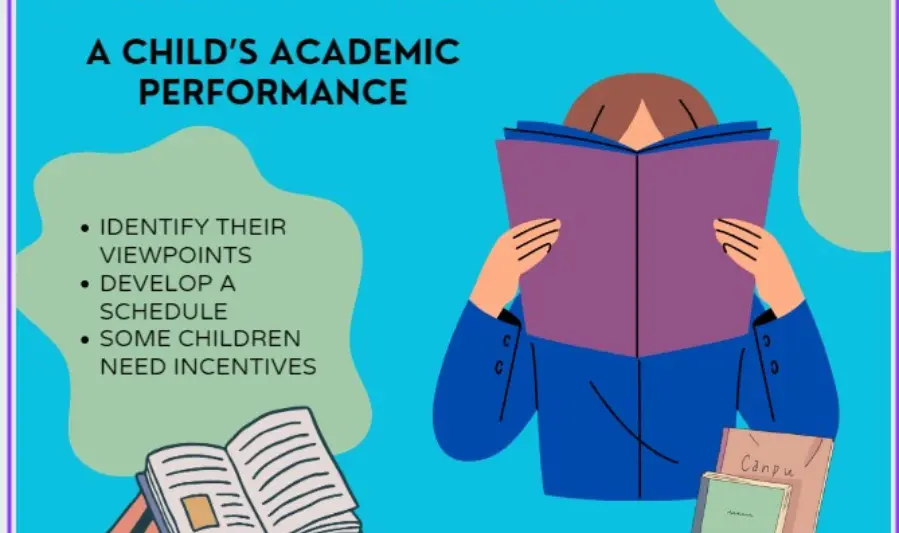Introduction
Time management in the context of student life refers to the ability to plan, prioritize, and effectively allocate time to various academic, personal, and extracurricular responsibilities. With multiple deadlines, assignments, exams, and personal commitments, students often find themselves overwhelmed and struggling to keep up.
Many face challenges such as procrastination, distractions, poor planning, and lack of clear goals, all of which can lead to stress, missed deadlines, and reduced academic performance.
The purpose of this blog is to highlight why time management is so important for students, and how mastering this skill can lead to better productivity, improved grades, reduced stress, and a more balanced student life.
Improves Academic Performance

Effective time management has a direct impact on a student’s academic success. When students manage their time well, they’re more likely to stay organized, reduce stress, and perform better in their studies.
- Enables Consistent Study Habits:
Scheduled study sessions encourage regular review, which helps in understanding concepts over time rather than rushing through material at the last minute. - Reduces Last-Minute Cramming:
Proper planning spreads out the workload, minimizing the need for all-night cramming, which is often ineffective and mentally exhausting. - Leads to Better Understanding and Retention:
Spaced and consistent learning allows the brain to absorb and retain information more effectively, improving long-term academic performance.
Reduces Stress and Anxiety
One of the biggest advantages of good time management is its ability to lower stress levels, especially during busy academic periods.
- Prevents Panic Caused by Looming Deadlines:
When tasks are scheduled in advance and spread out over time, students are less likely to feel overwhelmed or caught off guard by sudden deadlines. - Helps Students Feel More in Control:
Having a clear plan of action gives students a sense of direction and control over their workload, reducing feelings of chaos and confusion. - Allows Time for Breaks and Self-Care:
Time management ensures that rest, sleep, and leisure are built into the schedule—essential for maintaining mental and physical well-being.
Encourages Responsibility and Self-Discipline
Time management is more than just planning your day—it’s a life skill that shapes character and mindset, especially for students learning to manage their own schedules.
- Teaches Students to Prioritize Tasks:
With limited hours in a day, time management encourages students to distinguish between what’s urgent, important, or can wait—fostering smart decision-making. - Develops Accountability and Personal Organization:
Creating and sticking to a schedule builds a habit of accountability. Students begin to take ownership of their progress and stay organized without constant reminders. - Builds Maturity and Independence Over Time:
Managing time effectively teaches students how to be self-reliant and responsible—skills that are essential not just in school, but throughout life and future careers.
Promotes a Healthy Work-Life Balance

Effective time management allows students to achieve academic goals without sacrificing their personal lives, helping them maintain a well-rounded lifestyle.
- Ensures Time for Social Life, Hobbies, Rest, and Exercise:
A balanced schedule includes more than just study time—it also makes room for friends, creative interests, physical activity, and proper rest. - Helps Avoid Burnout and Overcommitment:
Without planning, students often take on too much at once. Time management helps prevent mental and physical exhaustion by setting realistic limits. - Supports Emotional and Mental Well-Being:
When students feel in control of their time, they’re less likely to feel overwhelmed. This balance improves overall mood, motivation, and academic resilience.
Increases Productivity and Focus
Good time management allows students to maximize their output without burning out. With a clear plan in place, they can concentrate better and complete more in less time.
- Students Can Get More Done in Less Time:
Structured schedules help reduce procrastination and allow for focused work sessions, making it easier to accomplish tasks efficiently. - Reduces Time Wasted on Distractions:
When students plan their study periods and eliminate unnecessary interruptions, they’re less likely to waste time scrolling, multitasking, or feeling lost in what to do next. - Helps Set and Achieve Realistic Goals:
Time management promotes clarity. Students can break larger goals into smaller, manageable steps, track their progress, and stay motivated by seeing results.
Builds Confidence and Motivation
Time management doesn’t just improve academic results—it also strengthens a student’s self-esteem and inner drive to succeed.
- Completing Tasks on Time Increases Self-Belief:
Meeting deadlines and staying on track builds trust in one’s own abilities, reinforcing a “can-do” attitude. - Keeps Students Motivated Through Visible Progress:
When students see consistent progress toward their goals, they’re more likely to stay focused and keep pushing forward. - Boosts Morale with a Sense of Achievement:
Crossing items off a to-do list or finishing tasks ahead of schedule provides a sense of accomplishment that fuels further motivation.
Prepares Students for Future Success
Mastering time management early lays the foundation for success beyond the classroom.
- Time Management Is a Vital Career and Life Skill:
Whether in college, the workplace, or personal life, the ability to manage time effectively is essential for long-term success. - Improves Chances of Success in College, Jobs, and Entrepreneurship:
Students who manage time well tend to meet deadlines, handle multiple responsibilities, and deliver consistent results—all traits valued in higher education and professional environments. - Teaches Life-Long Habits Like Punctuality and Planning:
These habits not only enhance academic performance but also foster a reliable, goal-oriented mindset that supports success in all areas of life.
you may also like to read these posts:
Best Gaming PCs Under $1000 in 2025 for Smooth
Best Business Computers in 2025: Performance & Reliability
Powerful & Compact: Best Portable Mini PCs for Work
Why Every Student Needs Time Management Skills: Explained with Key Benefits
Encourages Better Decision Making
Effective time management empowers students to make smarter choices by thinking critically about how they spend their time.
- Helps Students Evaluate What’s Urgent vs. Important:
Learning to distinguish between high-priority tasks and low-impact activities enables students to focus on what truly matters. - Reduces Impulsive Decisions:
With a clear plan in place, students are less likely to make rushed or poorly thought-out choices that waste time or derail progress. - Encourages Intentional and Strategic Planning:
Time management promotes a more thoughtful approach to both academic and personal decisions, fostering habits that lead to long-term success.
Tips to Start Managing Time Effectively
Getting started with time management can be simple if you follow these practical steps:
- Use Planners, Calendars, or Time-Blocking:
Whether digital or paper-based, these tools help organize your day and allocate specific time slots for tasks, reducing the chance of forgetting or procrastinating. - Break Tasks into Smaller Steps:
Large projects can feel overwhelming. Dividing them into manageable chunks makes them easier to tackle and track progress. - Avoid Multitasking and Set Clear Goals:
Focus on one task at a time to improve quality and efficiency. Setting clear, achievable goals provides direction and motivation. - Review and Adjust the Schedule Weekly:
Life changes, and so should your plan. Regularly revisiting your schedule helps you stay flexible and realistic while keeping your priorities aligned.
Faqs:
What is time management, and why is it important for students?
Time management is the practice of organizing and planning how to divide your time between various activities. For students, it helps improve academic performance, reduce stress, and balance schoolwork with personal life.
How does time management reduce stress for students?
By managing time well, students avoid last-minute cramming and rushing through assignments. This organization creates a sense of control and allows for breaks, which lowers anxiety and stress levels.
Can time management really improve my grades?
Yes! When students allocate specific time for studying and stick to a schedule, they retain information better and perform more consistently, leading to improved grades.
What are some simple time management tools for students?
Common tools include planners, calendars, to-do lists, and digital apps like Google Calendar or Trello. These tools help students track deadlines, prioritize tasks, and stay organized.
How can students stay motivated to manage their time effectively?
Setting clear goals, breaking tasks into manageable steps, rewarding themselves for achievements, and tracking progress can all help maintain motivation.
Conclusion:
Effective time management is essential for students to achieve academic success, reduce stress, and maintain a healthy balance between studies and personal life. By prioritizing tasks, setting realistic goals, and using the right tools, students can improve productivity and build habits that benefit them beyond the classroom. Developing strong time management skills early on not only enhances learning but also prepares students for future challenges.





